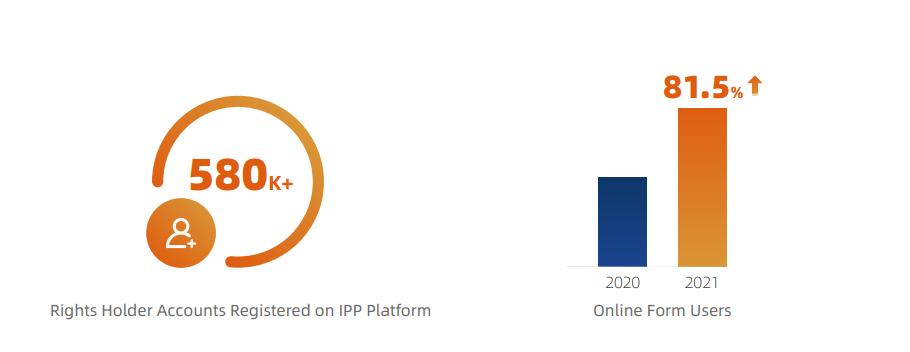
Photo credit: Shutterstock
Alibaba Group and its partners tackled suspected infringing listings and bad actors to protect intellectual property rights (IPR) last year in a rapidly evolving digital economy.
The e-commerce giant took down gangs, from movie pirates to counterfeiting rings, by deploying new technology and strengthening collaboration with key stakeholders, according to the group’s annual report on IPR protection released Thursday.
As e-commerce business models rapidly evolve, rights holders and marketplaces must also adapt to protect emerging forms of digital assets. Last year, Alibaba and rights holders placed greater emphasis on the IP protection of digital images used for brand advertising and digital storefront decorations, the report said.
“There are evolving and complex challenges we have been addressing together, including improving book and film copyright protection, geographical indications, and cracking down on new types of counterfeiting,” said Jessie Zheng, Alibaba Group’s Chief Risk Officer.

Alibaba had over 580,000 rights holders accounts on its intellectual property protection platform by the end of last year; through these accounts Alibaba protected over 640,000 individual IP rights. For context, Seattle-headquartered Amazon’s most recent Brand Registry featured more than 500,000 brands.
“In 2021 we really diversified the types of IPR we protect, and provided support to a breadth of rights holders, which you do not see elsewhere in the industry,” said Zheng.
Notwithstanding the need to quickly find the correct legal applications for new types of digital assets and the scale of operations, platform governance statistics held steady year-over-year. The Hangzhou-based company said 98% of IPR infringement takedown requests were processed within 24 hours during business days, on par with results in the 2020 annual report, and up from 96% in 2019.
Alibaba worked with a network of IP rights holders, law enforcement, industry associations, consumer groups, designers, academics and other stakeholders to safeguard online transactions and crack down on counterfeiters offline.
“A series of large criminal cases have been cracked through cooperation with local law enforcement agencies and Alibaba. During the cooperation, the two sides have established an effective deterrent against counterfeiters,” said Fu Xushun, Legal Director of Yatsen Holding, owners of the brand Perfect Diary.
Fighting Crime
Alibaba supported law enforcement across China with clampdowns on 2,685 cases, achieving estimated case values totaling RMB3.8 billion ($600 million). These actions resulted in the arrest of 1,968 suspects and hardened the deterrent for counterfeiters.
In one operation, under the supervision of the Food, Medicine, and Environment Crime Investigation Office of the Guangdong Provincial Public Security Department, Alibaba supported raids at 30 large-scale counterfeit medicine and mold production sites, leading to the arrest of 43 criminal suspects.
Alibaba continued to build on its work with rights holders through the Alibaba Anti-Counterfeiting Alliance (AACA) to support IP rights protection. Launched over five years ago, the AACA had 207 members, up from 193 at the end of 2020.
“This cooperation model can successfully integrate anti-counterfeiting technologies and resources of all parties and upgraded the anti-counterfeiting rights protection capabilities of rights holders to a new level,” said Shen Yaqing, Deputy IP Manager of Jaguar Land Rover (China).
Alibaba also doubled down on its IPR enforcement support for small and medium-sized enterprises (SMEs) last year. In September, the AACA celebrated the first anniversary of its SME Advisory Committee, a forum dedicated to discussing the unique issues that SMEs face protecting their IPR globally.
In addition, more than 600 SMEs joined Alibaba’s Simp’Ali IPR Cooperation Program – launched in 2020 to simplify the notice and takedown process for SMEs. The initiative helped reduce time spent by SMEs familiarizing themselves with enforcement procedures and enhanced online IP protection.
“Alibaba is moving the industry forward and bringing SMEs with it by giving small companies like ours a voice,” said Ashley Gomez, co-owner of Et Al Beauty, a small family-owned business in Henderson, Nevada.
Alibaba is moving the industry forward and bringing SMEs with it by giving small companies like ours a voice
New Tech
Alibaba continued to invest in technology to combat IP infringement last year, introducing additional features like image recognition and multi-modal recognition to its core anti-counterfeiting technology.
Alibaba also worked with brands to create intelligent algorithms to enhance efforts against misuse of digital assets as well as physical products.
During the year, Alibaba also expanded the use of its Virtual Model, China’s first artificial intelligence-powered system for creating photos of virtual models wearing apparel. The tool furnished 14,000 businesses with unique computer-generated images for their product listings, and generated 760,000 unique digital copyright identifiers for businesses.
Unauthorized camcording in cinemas for illegal online distribution and screenings is rife. Alibaba supported strikes against piracy by the movie industry with the group’s invisible video watermarking technology that cannot be deleted or modified. When a pirated film work is published a warning is automatically triggered.
Alibaba drove new solutions for specialized fields, including geographical indicators, book copyrights, and the protection of the IP assets of the Olympic Games.
“Our joint efforts with partners are crucial to foster the protection and continued development of new IP,” said Alibaba’s Zheng.
Read More: Alibaba’s 2021 Annual IPR Protection Report & Alibaba’s 2022 IPR Protection Handbook for SMEs for best practice on notice-and-takedowns
Updated to clarify that paragraph seven refers to the 2020 report published in 2021




